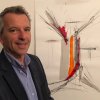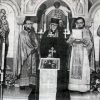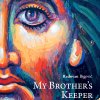After the Belgrade period he established his practice in London, UK for the next 20 years. In 2009 he relocated to USA where he lives and work at the present. He has exhibited extensively in solo and group exhibitions trough out Europe and USA, completed many public art projects and his works are held in numerous corporate and private collections.
Source: Official Web Site





